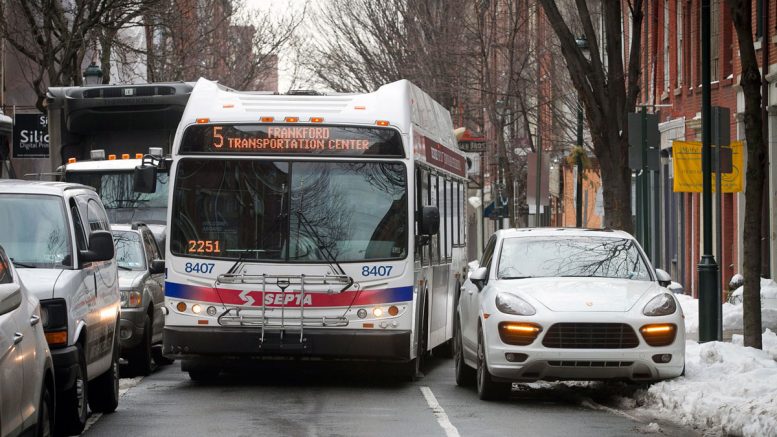A school bus driver turned away from a job as a SEPTA bus operator because of a drug conviction dating back nearly 20 years filed a federal lawsuit against the transit agency Wednesday.
The suit said SEPTA violates federal employment laws by routinely misusing criminal-history information turned up in background checks to eliminate potential employees, even when the offenses happened long ago and are irrelevant to the job.
SEPTA said it would have no comment on the lawsuit.
“People change their lives,” said Frank Long, 56, of Philadelphia’s Logan section, now a delivery-truck driver.
He said he filed the lawsuit “because I feel I was discriminated against” and because he wants SEPTA to treat fairly applicants who “paid their debt to society for things that happened years ago.”
Wednesday’s suit came as, just a block away in another federal building, nearly 30 experts in the challenges facing people getting out of prison were speaking at a conference titled “Reentry in Philadelphia: The Past, Present and Future.”
What made the gathering unusual was that it was hosted by the U.S. Attorney’s Office – some of the very prosecutors who lock people up in the first place.
“If you commit a crime, you do the time, you get out and you are written off,” said U.S. Attorney Zane David Memeger. “They need our help to reengage with the community in a positive way.”
Speakers included federal and state judges who spoke about mentoring programs and prison officials on the federal and state and local levels who talked about in-prison initiatives to reintegrate people into the community. Educators, advocates, employers, probation officials, and lawyers also spoke.
Mayor Kenney told the group that when he visited the city’s jails, he learned they house a “hopeful bunch of people who still have souls and still have heart and still want to do something.”
Kenney praised those in the room, saying, “All the people who do reentry are doing God’s work.”
One of the last to speak was Lakee Herring, 42, of Philadelphia’s Mount Airy section, who served 11 years in prison for his role in an armed bank robbery and who now works in construction.
“Don’t try to change a person,” Herring urged the group. Present options and “let these guys change themselves. Not everyone is going to succeed. Some will fall flat.”
But, he said, many have potential. “We can do more than lift trash. I can build buildings,” he said. “Give us a chance.”
Long’s suit comes as state, federal, and municipal laws are changing how criminal records affect employment.
In Pennsylvania, pending legislation would automatically expunge many misdemeanor offenses after 10 years.
The suit claims SEPTA’s background check and criminal histories violate federal employment laws.
Long said he had been working for a school bus company in October 2014 when he was interviewed to be a SEPTA bus operator.
He received an offer contingent on a background check, the suit said.
Long completed a form allowing SEPTA to look into his background. Later in October, SEPTA’s recruiter called and revoked the offer based on Long’s criminal history.
Long had felony convictions for possession and manufacture of a controlled substance in 1997 based on a 1994 arrest. He served two years in prison.
“I’ve lived in Philadelphia practically all my life and have experience doing exactly the kind of work SEPTA was hiring for,” Long said in an earlier statement. “I care about my community and am not a threat to anyone. This job would make a real difference in my life.”
Source: www.philly.com




